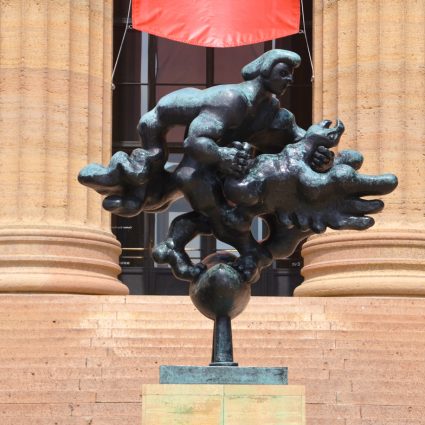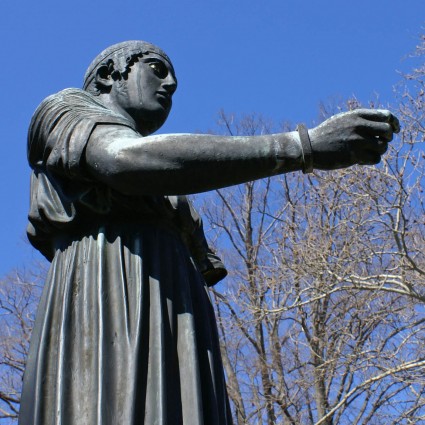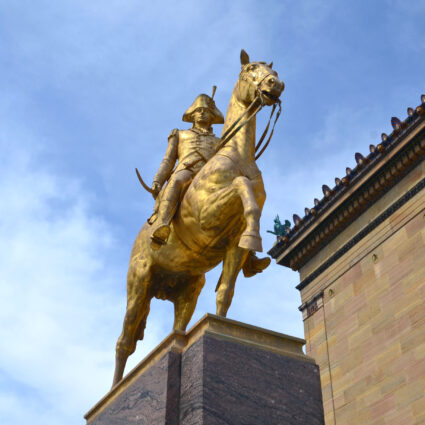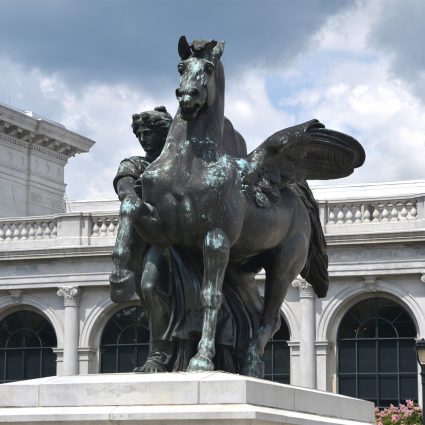Carl Paul Jennewein was a classical sculptor who was particularly interested in combining sculpture with architecture. The German-born American artist emigrated to New York in 1907, and studied sculpture at the American Academy in Rome for several years after winning the Prix de Rome in 1916. In addition to architectural sculptures and memorials, Jennewein is also known for his commemorative medal designs.
The colored glazing on the terra cotta figures reflects methods used in Greek architectural sculpture over two thousand years ago, and the 13 figures represent gods, mortals, and beasts from classical mythology.
His sculptures for the north pediment of the Philadelphia Museum of Art draw their content and technique from ancient Greece. The colored glazing on the terra cotta figures reflects methods used in Greek architectural sculpture over two thousand years ago, and the 13 figures represent gods, mortals, and beasts from classical mythology. The theme is that of sacred and profane love.
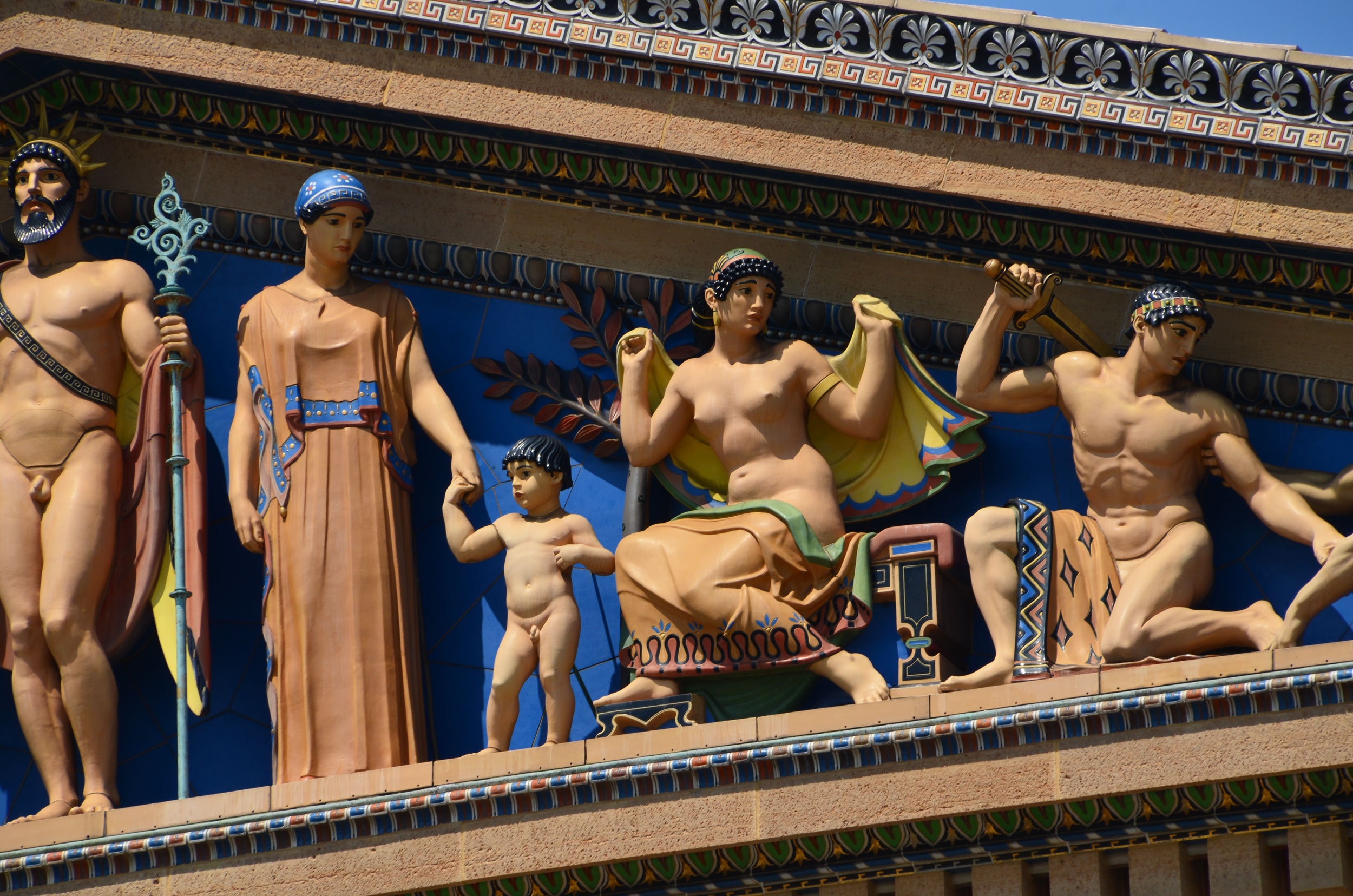
Zeus, ruler of the gods, is the central figure, and to the right is Demeter, presented as the protector of marriage, holding the hand of the child Triptolemus, whom she rescued from a mortal illness. Next are Ariadne, Theseus slaying the Minotaur, and the beast Python. Beside Zeus stand Aphrodite, goddess of love, and her son, Eros, Hippomenes in the form of a lion, Adonis, Nous (the mind), and Eos, goddess of the dawn, who is turning away from the Owl, the bird of night.
The figures were fabricated by the Atlantic Terra Cotta Company, and the colorist was Leon V. Solon, author of Polychromy.
Adapted from Public Art in Philadelphia by Penny Balkin Bach (Temple University Press, Philadelphia, 1992).
Enjoying this content?
Click here to donate and help us continue to tell the story of public art in Philadelphia.
This artwork is part of the Around the Philadelphia Museum of Art tour
